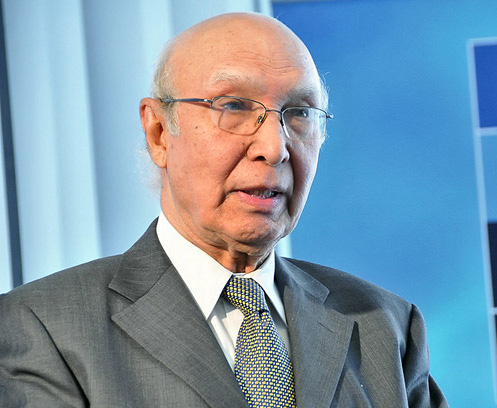UNITED NATIONS: Pakistan has told the United Nations that it was continuously raising awareness, providing healthcare and building capacity for effective implementation of population control strategies in the country.
In his address at the UN General Assembly, the prime minister’s advisor on national security and foreign affairs Sartaj Aziz reaffirmed Pakistan’s abiding commitment to the objectives of the 1994 landmark Cairo International Conference on Population and Development (ICPD), and highlighted the salient achievements made in this regard.
The occasion was the 29th special session of the 193-member assembly on follow-up to the programme of action of international conference on population and development.
The adviser said that Pakistan had pioneered the launch of population program in SAARC region. The population control strategies included national population policy of 2002, establishment of nation-wide help lines for counseling, incorporation of population and health-related contents in text books and a whole range of new legislation for protection and empowerment of women in social, economic and political spheres.
“Moreover, the subject of population welfare had been devolved to provinces for greater efficiency”, he added.
Sartaj Aziz said that these policies of the government had yielded significant results, leading to decrease in total fertility rate from 5.3 to 3.8, increase in contraceptive prevalence rate from 11.8% to 35%, and decline in population growth rate from 2.6% to 1.95%.
“However, the Government still faced some challenges including unmet need of 20% for family planning services and wide disparity in access to services between rural and urban populations, rich and the poor,” he added.
In order to overcome these challenges, the adviser reiterated Pakistan’s commitment to reduce the unmet need and to increase the CPR to 55% by 2020, to complete the unfinished agenda of Millennium Development Goals (MGDs), to ensure women access to reproductive health services in accordance with Pakistan’s international commitments and constitutional obligations, and to address reproductive and maternal health needs of communities affected by natural disasters.

